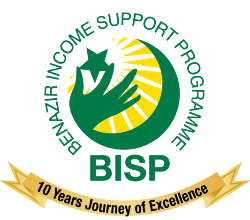In Pakistan’s relentless battle against socio-economic challenges, the Benazir Income Support Programme (BISP) stands as a beacon of hope, utilizing digital technology to eradicate poverty and uplift marginalized households. A recent evaluation report by the World Bank sheds light on the program’s achievements and areas for further development, emphasizing the transformative power of digitalization in social protection efforts. World Bank evaluates Pakistan’s digital 10500 Benazir Kafaalat programme in March month.

BISP’s Transformational Journey
The World Bank report underscores the evolution of Pakistan’s social protection landscape, particularly highlighting the period between 2011 and 2019, during which BISP significantly reduced poverty rates. From a narrow and subjective targeting approach pre-2008 financial crisis, BISP expanded its reach and impact, leading to a notable decrease in poverty levels. The injection of $1 billion into the economy by BISP underscores its pivotal role in fortifying social safety nets and fostering development in underserved regions.
Success Stories of BISP
BISP’s success stories are numerous, ranging from bolstering consumption spending to empowering women and enhancing food security. The program’s financial autonomy, administrative flexibility, and transparent accountability mechanisms have facilitated substantial investments in delivery systems and initiatives. Notably, BISP’s budget allocation and coverage have seen a significant surge, benefitting 9.2 million families, a testament to its growing importance in Pakistan’s social security architecture.
Despite its accomplishments, BISP faces formidable challenges in maintaining its efficacy. The gradual erosion of the benefit’s value over time has diminished its impact, necessitating urgent revisions to ensure adequacy amidst rising costs. Communication hurdles and issues with the National Socio-Economic Registry (NSER) pose additional barriers, underscoring the need for targeted interventions to enhance inclusivity and effectiveness, especially among marginalized groups.
Harnessing Technology for NSER Survey Progress
BISP’s integration of data and biometric technology marks a paradigm shift in its delivery mechanisms, enhancing responsiveness and accessibility. The fusion of the National Socio-Economic Registry (NSER) and biometric verification system (BVS) has streamlined verification and payment processes, enabling real-time assistance during crises such as the COVID-19 pandemic and natural disasters.
World Bank’s Roadmap for BISP Improvement
The World Bank report outlines several recommendations to augment BISP’s effectiveness. Foremost among these is the immediate increase of benefit levels to 15 percent of average household consumption, addressing the pressing issue of diminishing benefits. Leveraging business intelligence software by NSER and the National Database and Registration Authority (NADRA) can unlock the potential of digital identification data for informed decision-making and operational efficiency. Moreover, a robust strategy is imperative to navigate the transition to new payment methods, ensuring beneficiary satisfaction and financial inclusion. Continuous monitoring and impact assessments are indispensable for evaluating program effectiveness and guiding future endeavors.
How has BISP contributed to poverty alleviation in Pakistan?
BISP has significantly reduced poverty rates in Pakistan, with a visible impact on consumption spending, food security, and women’s empowerment. Its strategic interventions have injected $1 billion into the economy, highlighting its crucial role in mitigating socio-economic disparities.
Conclusion
The World Bank audit underscores BISP’s remarkable journey towards poverty alleviation and social empowerment in Pakistan. While challenges persist, the integration of technology and strategic reforms offer a roadmap for a more inclusive and effective social protection system, paving the way for a brighter, more equitable future.

